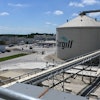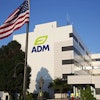The ever-changing face of food safety and regulation has has prompted Leavitt Partners, Faegre & Benson and B&D Consulting to join forces in providing companies involved in the global food supply chain with a collaborative solution to food safety management. This joint effort offers guidance to companies seeking to navigate the shifting food safety challenges of today’s systems, and the new regulations resulting from the passage of the 2011 Food and Drug Administration Food Safety Modernization Act (FSMA).
The three collaborating partners have created a hypothetical situation forFeed & Grainmagazine to describe how they would help companies effectively manage risk and meet the challenges in the food safety arena. When working with a joint client, the three organizations will operate together and through this synergism are able to provide a unique and powerful set of solutions to cover all aspects of a potential food safety issue.
Imagine this situation: A feed additive in the swine chain has some contaminant/adulterant that could impact the ultimate meat product, and may have entered into the consumer supply chain.
Faegre & Benson: A Legal Perspective
Potentially contaminated or adulterated animal feed fed to swine can have varying legal implications ranging from customer management and regulatory compliance to complex litigation. Experienced legal counseling and representation is critical given the broad and varied implications of food safety issues, including regulatory enforcement and private litigation.
As soon as the client is aware of the feed additive that may have been contaminated or adulterated, Faegre & Benson works with that client to create a response plan and engage in risk management. Faegre & Benson is prepared to advise the client on supply chain management issues, counseling and reporting requirements, recall plans, avoiding or preparing for potential FDA enforcement actions, handling commercial claims and litigation arising from food contamination, addressing recall labeling issues, and advising on food labeling and recordkeeping requirements. Particularly important in this scenario, Faegre & Benson will assist in navigating the complex jurisdictional and regulatory issues that arise when both US Food and Drug Administration (FDA) (which regulates feed) and the United States Department of Agriculture’s (USDA) Food Safety and Inspection Service (FSIS) (which regulates meat) are involved in a food safety issue.
The first step would be to work with the client to fully understand the background and facts surrounding the potential contamination to estimate the breadth of the legal implications involved. From there, Faegre & Benson experience with the relevant statutory scheme and agency guidance statements, and its deep experience with handling these crises for clients, will help the client understand what issues it may face in dealing with regulators. This evaluation is critical in assisting the client to determine what steps come next.
The next step would be to review the immediate required actions; for example, whether there are reporting requirements to FDA, such as to the Reportable Food Registry. Faegre & Benson will also help the client assess the likelihood of a recall — to know if recall is necessary and, if so, to guide the client through each step of that recall procedure. This includes counseling on necessary steps during the process to minimize exposure to commercial and consumer claims, working with agencies to negotiate the least costly actions moving forward, and helping to obtain insurance coverage, if available.
适当Faegre &本森也有助于communication of the legal issues with customers of the potentially adulterated product. This is critical in managing downstream risk. If other litigation arises, such as food-borne illness litigation, consumer lawsuits, or other commercial claims, Faegre & Benson is able to handle each step through the litigation process.
After the situation is under control and all regulatory and safety concerns have been handled to the greatest extent possible, Faegre & Benson is available to assist the client in further developing its recall and crisis response documents and in devising solutions to assure the problem never happens again. This may include reviewing a HACCP plan or creating a more comprehensive hazard analysis plan required under FSMA, perhaps with more detailed preventive controls and hazard-based analysis.
Faegre & Benson will be there for the client through each step of any food safety issue to advise on legal and regulatory issues, working closely when appropriate with team members from Leavitt Partners and B & D Consulting. The holistic approach maximizes the overall risk management to minimize costs and disruption to the company.
Leavitt Partners: Technical, Scientific and Regulatory Services
Contaminated animal feed fed to swine can have multiple veterinary and human health implications. It also represents the challenge of navigating a regulatory situation that bridges both the U.S. Food and Drug Administration and the Department of Agriculture’s Food Safety and Inspection Service. As such a situation evolves, there are two significant angles that have to be addressed. The first is managing the immediate crisis and the second is finding ways to ensure that appropriate preventive controls are put in place to minimize the likelihood of a recurrence.
Managing the acute crisis situation requires a combination of skill sets that include understanding the real risk to humans and animals, making the right company decisions based on those risks and regulatory requirements, interacting with regulators as the process unfolds, and communicating company actions to customers and the public in general.
莱维特伙伴有专业知识和经验ssessing public health risk by quickly analyzing the science behind the adulterant and how it can impact human health, and then presenting that information to our client in a way that is easily understood in the context of regulatory impact and potential brand damage linked to human illness and deaths. This allows the client to make informed decisions regarding next steps. Should there already be human illness that has led back to the client’s product, Leavitt Partners has the capacity to rapidly review the epidemiology linking the human illness with the client’s product to determine the strength of the association. Our relationships with federal and state investigators can be leveraged as this unfolds. Leavitt Partners’ personnel have held senior positions at both the FDA and FSIS and thus know how the agencies operate and think, and in this capacity can interact directly with the regulators along with the company to address the ongoing crisis as well as potential regulatory and enforcement actions.
Should the need arise to issue press or media communication concerning the crisis, Leavitt Partners has substantial experience in developing accurate, appropriate public health messages and can help the company communicate with the media, either via written press statements, on-camera interviews, or by other means.
History shows that once a firm is hit with a crisis, its future takes one of two paths: it suffers irreparable damage and often goes out of business, or it uses the situation to demonstrate to customers and the public that it has learned from the experience and, through communication and action, positions itself as an industry leader. Once the crisis is behind the client, it is easy to try to forget potential lessons; however, our experience has taught us that these are the perfect opportunities to examine risks that may have contributed to the likelihood of the crisis occurring in the first place. This should be addressed even during the crisis situation in which new preventive strategies are identified and communicated to customers to ensure them that the client is addressing any future risks. Leavitt Partners would work with the client in this situation to examine upstream supply chain risk and how to control it. This may require a change in approach to required specifications, certificates of analysis or supplier audits. It may involve changes in product tracking and lot control, or it may focus on internal processing using both HACCP principles and targeted prerequisite programs. It may require a reassessment of product testing as regards sampling plans, use of accredited laboratories or testing strategies. Whatever the underlying cause, situations such as these can and should be leveraged with a client to focus on the key question of “what do I need to do differently to prevent this from happening again.” Leavitt Partners has the skills to guide the client through this process.
B&D Consulting: Handling Federal Affairs, Coalition-Building
这场危机将引发(在一个运行良好的联邦时代ncy and department) establishment of a government crisis-response team whose actions will directly impact the company. Agency subject matter experts and political leaders may literally gather in a war room-like setting and by teleconference to gather situation-status information, identify problems and solutions, and impose their view of the best federal response.
The crisis is also likely to trigger highly political activity, as various members of Congress take advantage of the situation, either by defending a local company that they represent or by using the situation to demagogue, seek media attention, call for hearings and push policy reforms.
It is essential that the company have a government affairs and public communication strategy that incorporates extensive knowledge of food safety law, policy, and regulations to maximize communication and confidence in the company's own response, minimize demonization of the company, use government support constructively, and protect company revenue in the long run.
Working closely with our partners in this collaboration, B&D Consulting would immediately take some of the following steps:
- Work with USDA, HHS, and FDA political leadership (and the White House if this were a serious national-level crisis) to keep them apprised of developments and ensure an open line of communication, making sure the company could avoid surprises associated with politically motivated retaliation. A well-run agency will take advantage of the additional information from the company as a good way to have cooler heads prevail if the media are stirring up wild scenarios.
- Work with congressional representatives/senators of the company to ensure they have full information and are positioned to support the company’s in its response.
- Work with congressional committees that have jurisdiction over Agriculture and FDA issues to keep them similarly apprised of developments and to defuse the immediate rush to new legislative solutions. The committees also will consider setting up "oversight and investigation" inquiries that will involve subpoenas of documents or company management for congressional briefings or public hearings. Early engagement with the committees to defuse overreactions will be essential. If hearings are in fact held, the company will need additional assistance in drafting written testimony and preparing a witness to answer questions on the record.
- Work with the government affairs and communications teams of the company to ensure that public communications/messaging to all audiences (including the media, public generally, social media) is consistent with the government messaging.
It is essential that the company establish a federal affairs crisis response that is rooted in a deep knowledge of the food safety-related issues at hand, that understands the agency's own crisis team and the other federal actors’ response in such a situation, and that delivers timely information, credibility, and results.





















